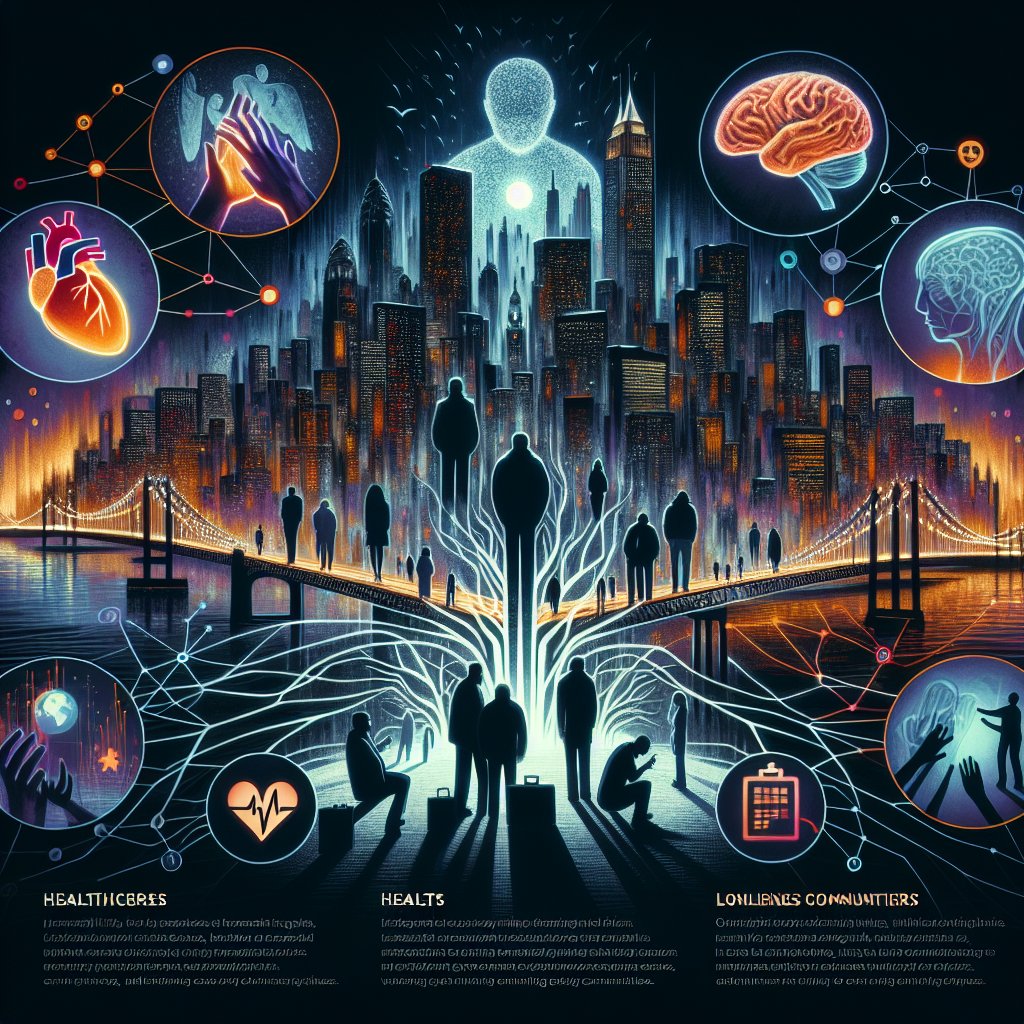Content created by AI
Bridging the Gap: Combating America's Loneliness Epidemic with Connection and Care
In a nation as interconnected as the United States, it is startling to confront a silent and growing crisis: the epidemic of loneliness. The detrimental effects of prolonged isolation have caught the attention of health experts, including U.S. Surgeon General Dr. Vivek Murthy, who is sounding the alarm on an issue bearing severe repercussions for physical and mental health. Murthy's clarion call for awareness and change is aimed at reversing the toll on American lives.
The challenges presented by loneliness are far-reaching, with research revealing links to heart disease, dementia, stroke, and premature death. As society grapples with heightened levels of reported loneliness, especially among young people, healthcare professionals and public leaders are developing strategies for a public health response that prioritizes social bonds as a pathway to wellness.
The multifaceted nature of loneliness—sometimes psychological, societal, or existential—complicates straightforward interventions. Loneliness can be a product of trauma, illness, aging, or even the consequences of technology supplanting human interaction. A notable Harvard study spotlights a concerning trend: 61% of 18 to 25-year-olds experiencing serious loneliness, suggesting that younger generations are at particular risk.
This issue has only intensified in the wake of the COVID-19 pandemic, during which many succumbed to social isolation. Even with a return to pre-pandemic activities, challenges remain, as increased remote work and the convenience of digital platforms may disrupt conventional avenues for establishing meaningful relationships.
Remarkably, one in two adults in the U.S. experience measurable levels of loneliness, surpassing the number of people living with diabetes. The comparison of loneliness to smoking up to 15 cigarettes a day, in terms of health impact, further highlights the gravity of the situation.
But why does loneliness inflict such harm? Experts believe stress hormones triggered by isolation lead to inflammation and unhealthy lifestyles, negatively impacting overall health. Moreover, lonely individuals may neglect preventive healthcare measures and self-care practices.
To counteract this epidemic, awareness is the essential first step. Small, intentional practices, such as daily check-ins with loved ones, volunteering, or ensuring undivided attention during conversations, can combat feelings of disconnection. On a larger scale, healthcare systems, employers, schools, and other institutions have a pivotal role in promoting social connections and implementing public health strategies to address loneliness.
The concept of social prescribing, where healthcare providers direct patients to community resources designed to foster companionship and engagement, exemplifies the importance of cross-sector collaboration.
In the end, the fight against loneliness is a collective effort. It requires a conscious investment in the social fabric of our communities—an investment that has the power to transform individual lives and society at large. This fight, as highlighted by leaders like Dr. Murthy, is not just about health but the very essence of human connection and well-being.










